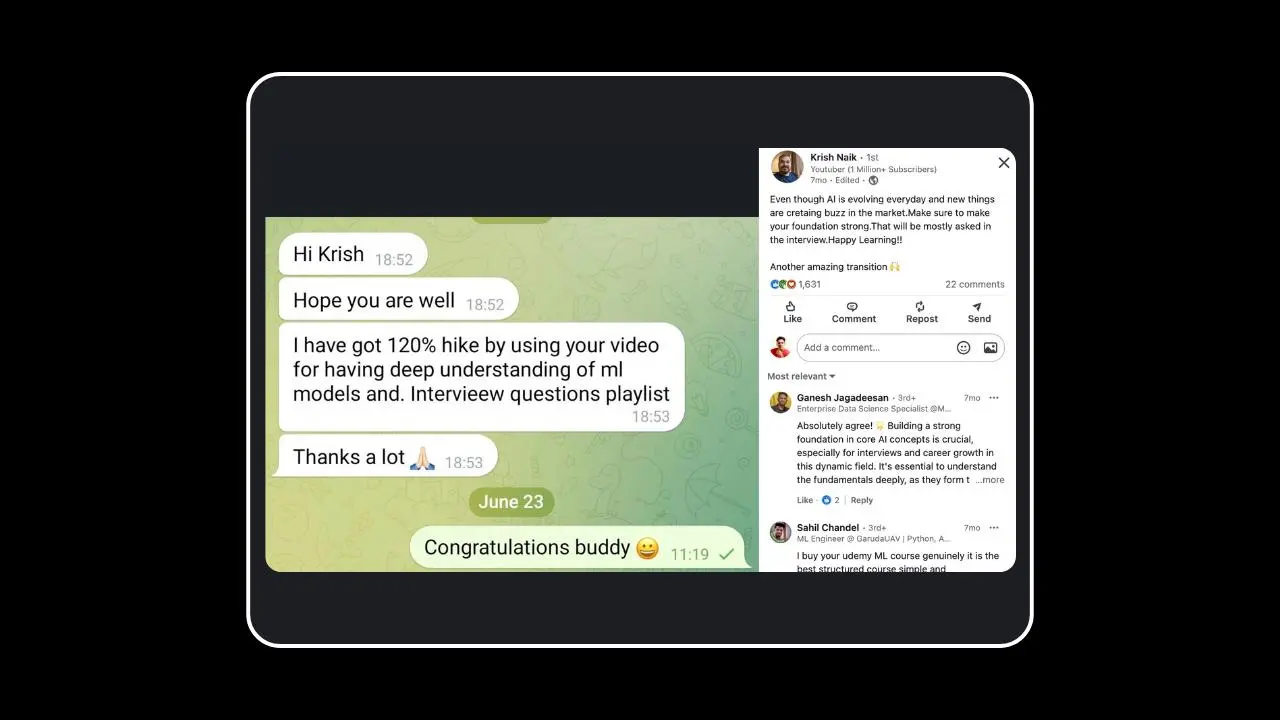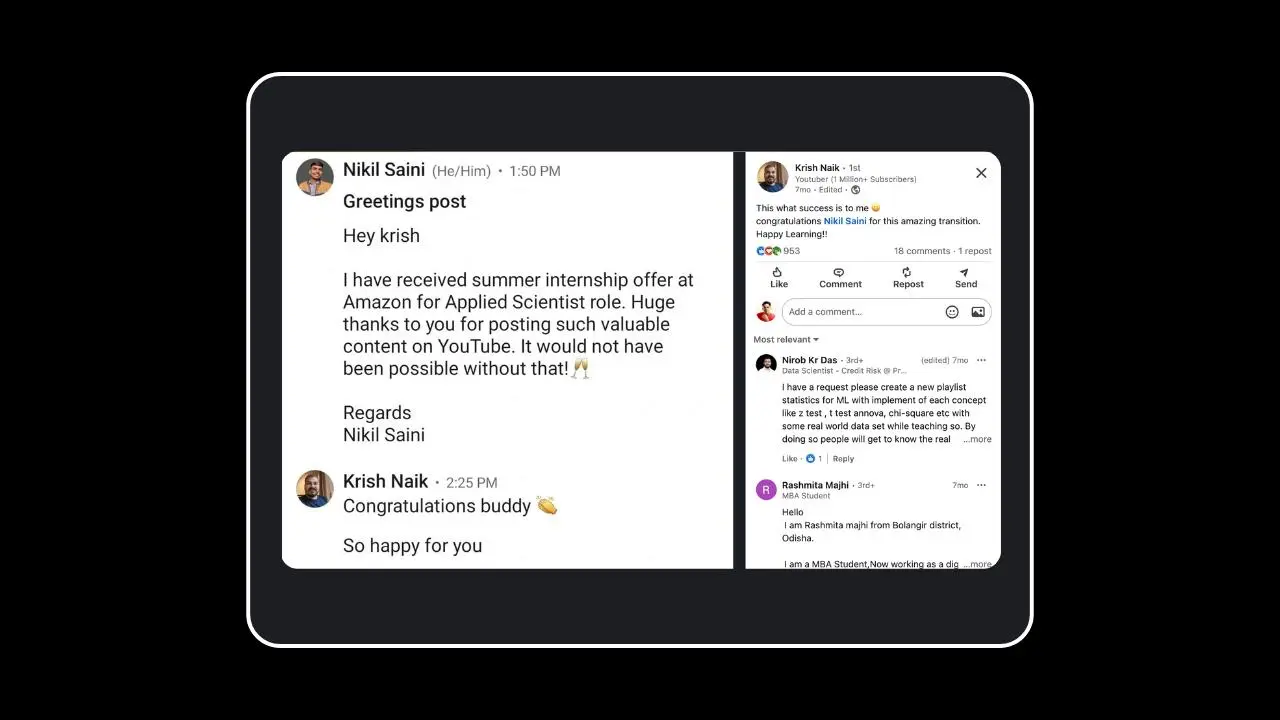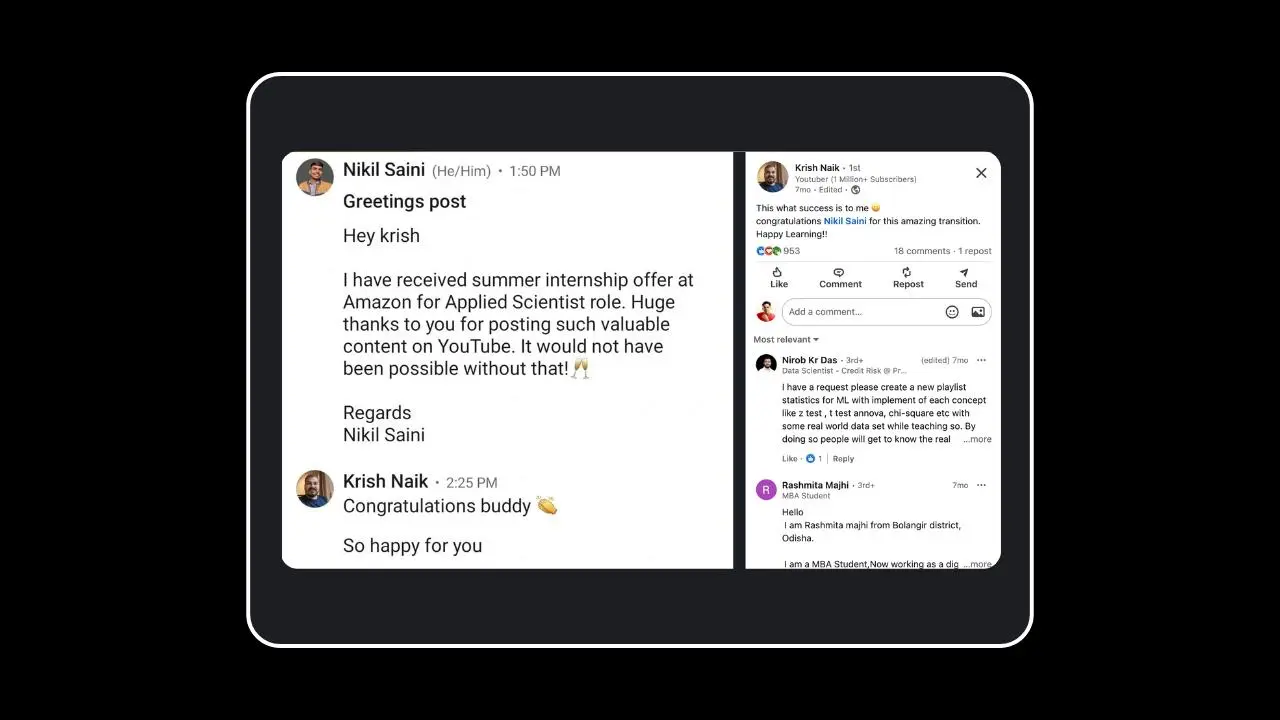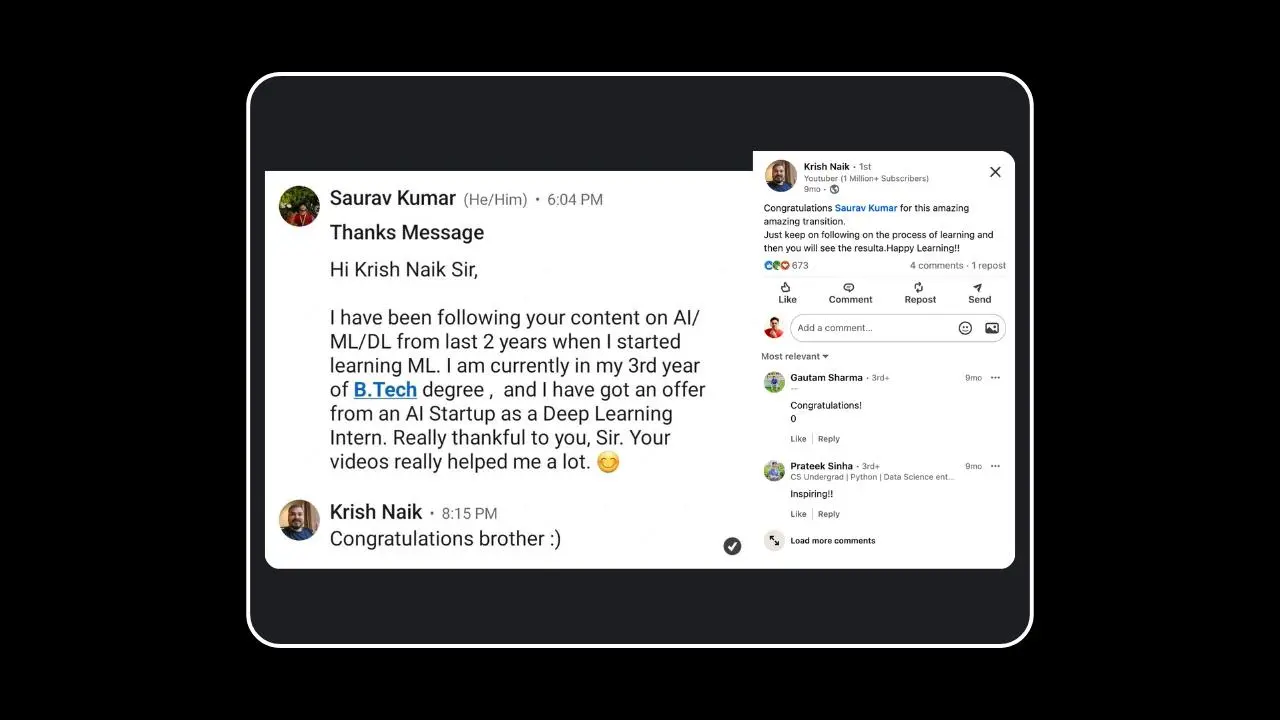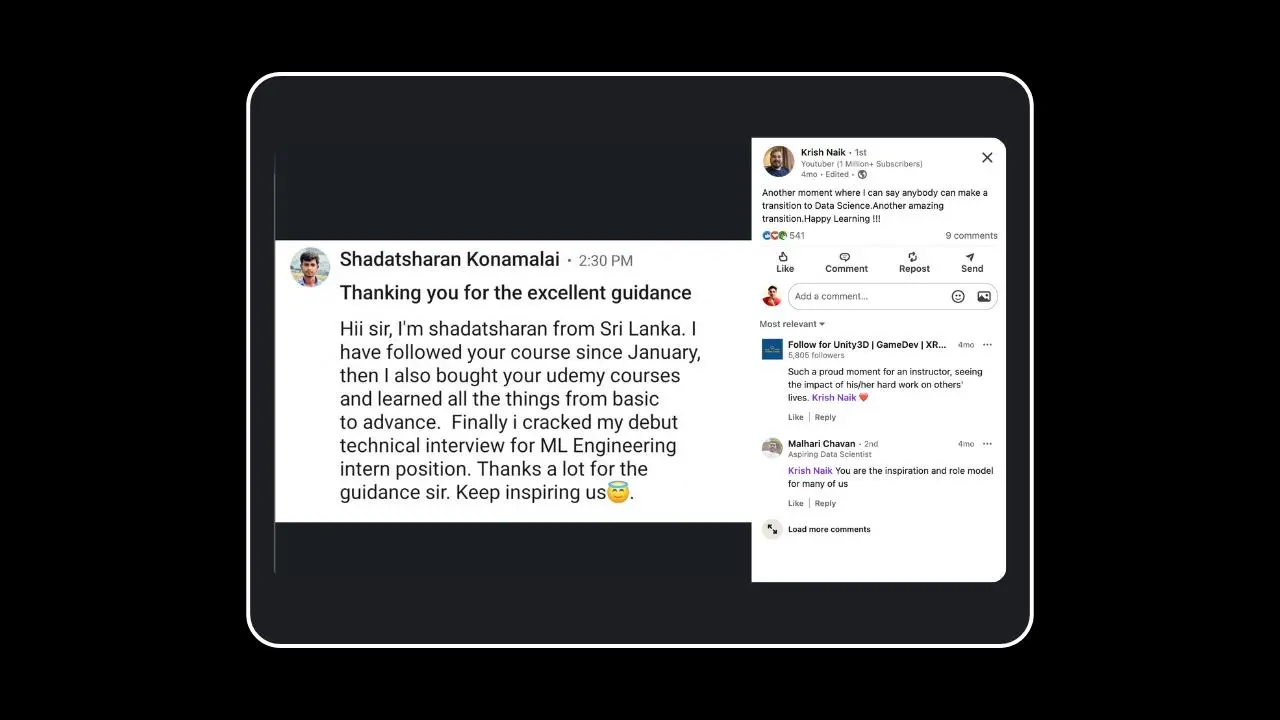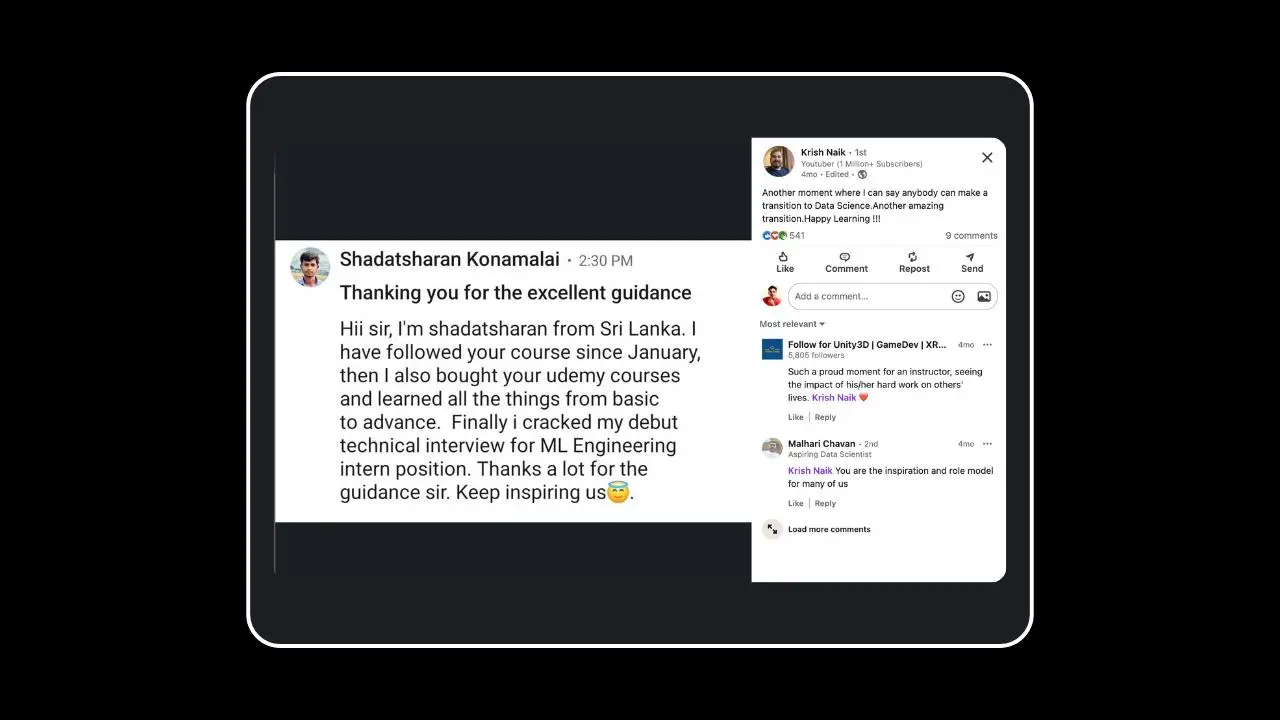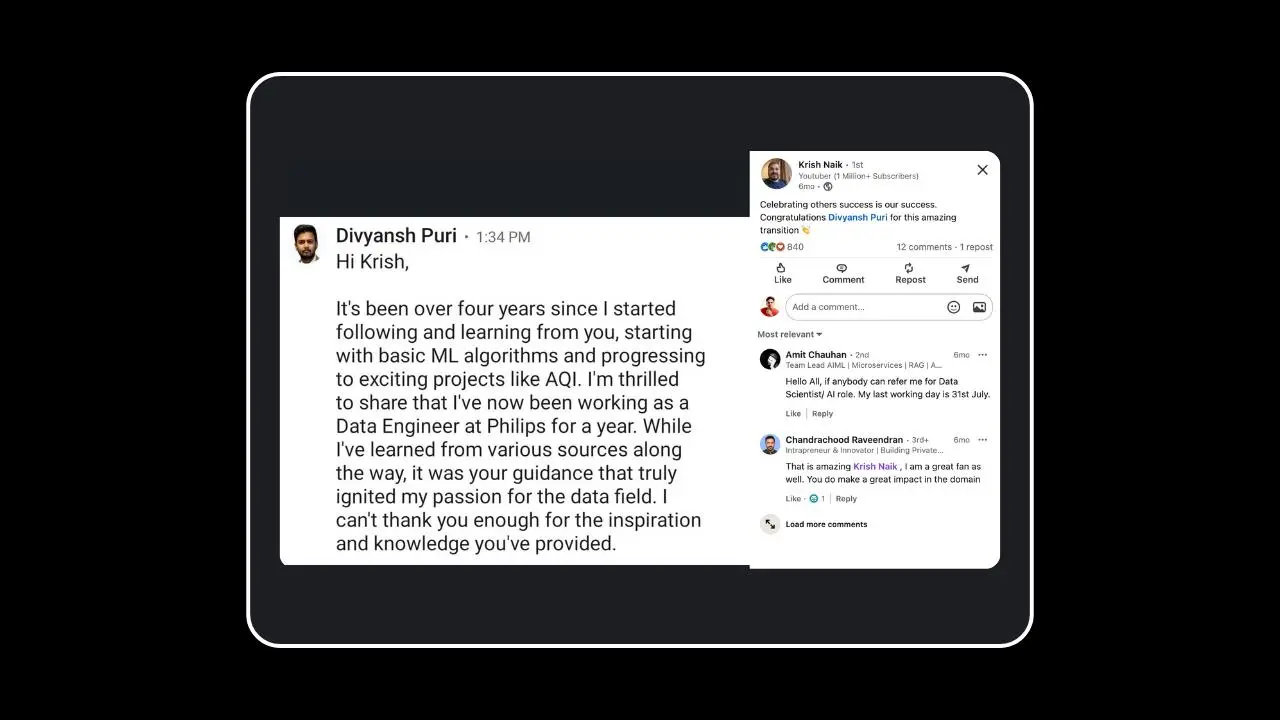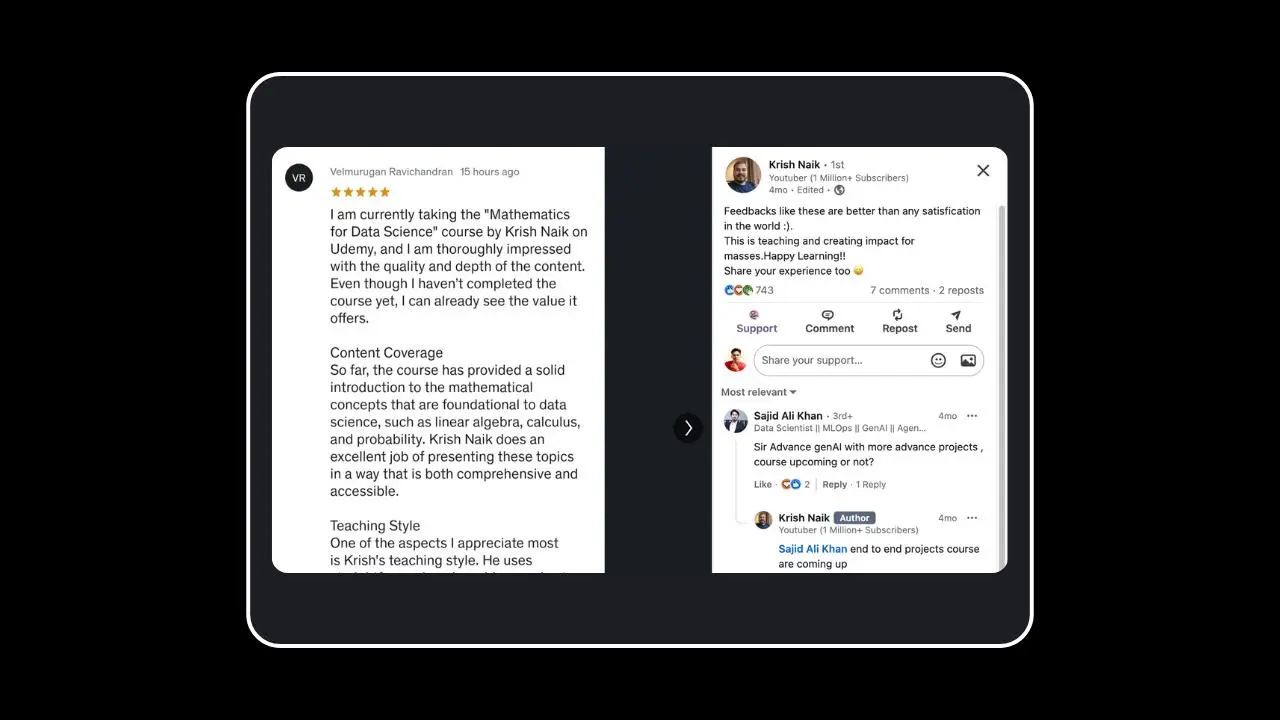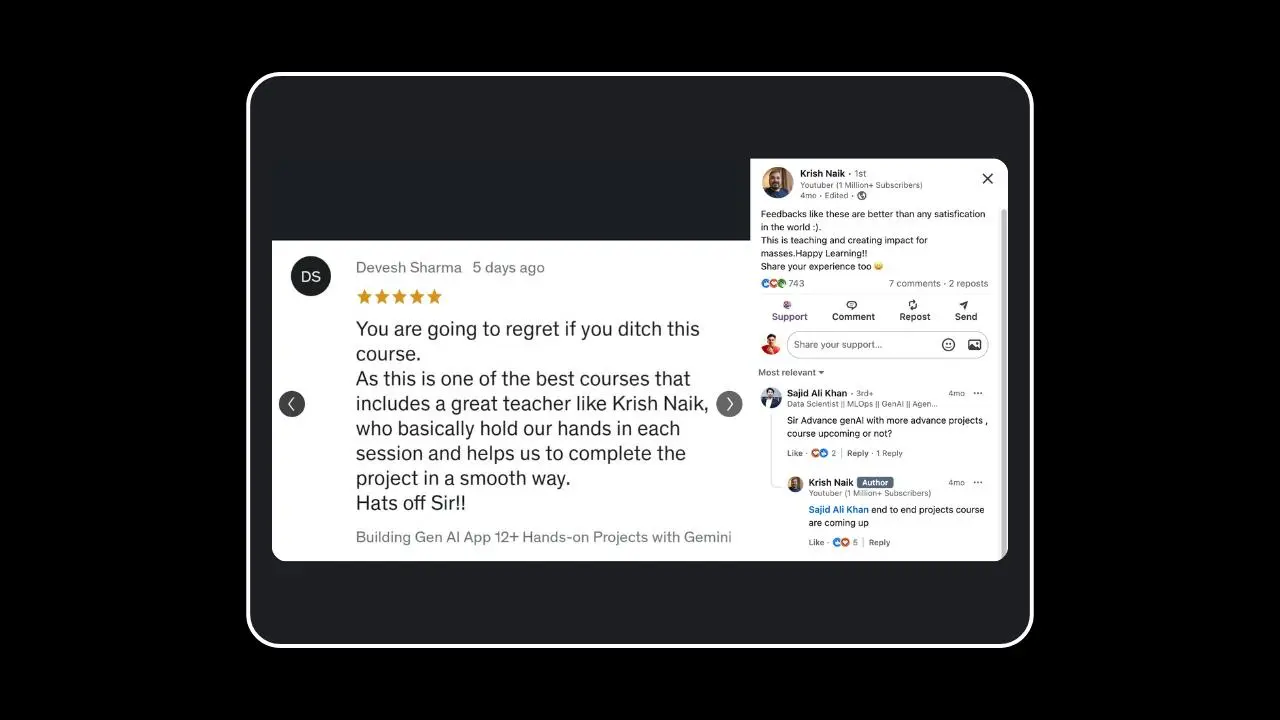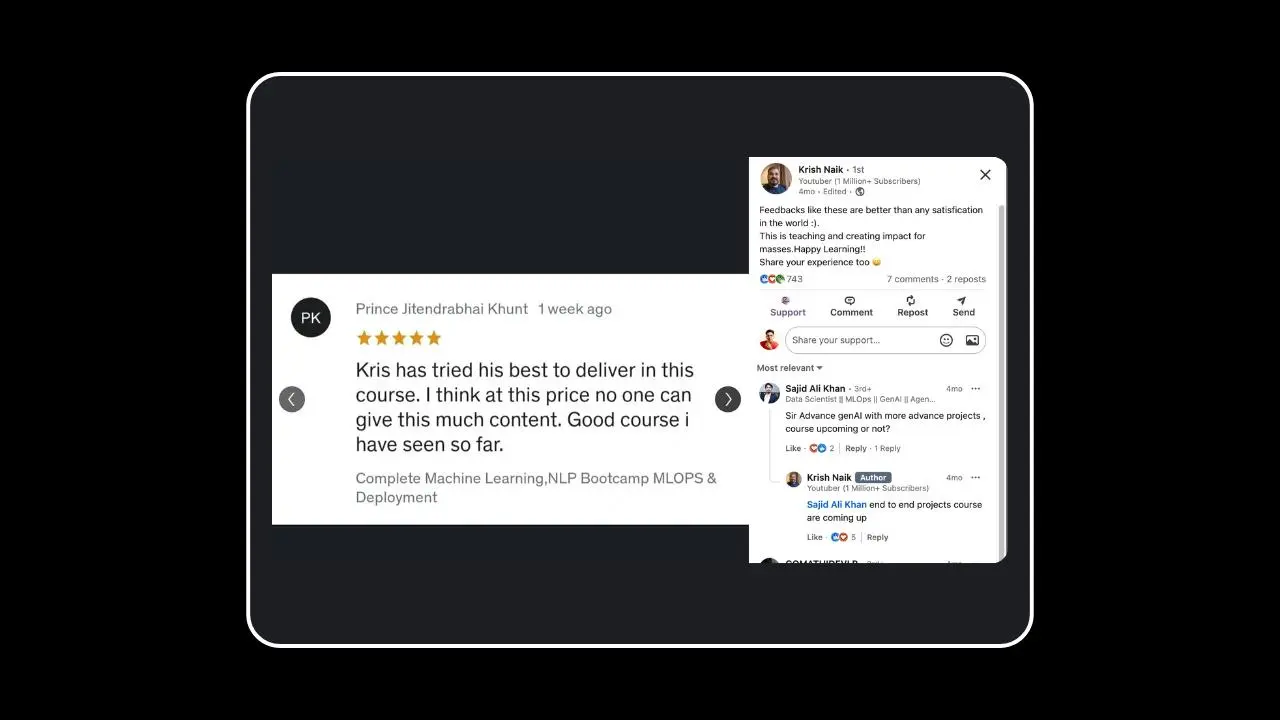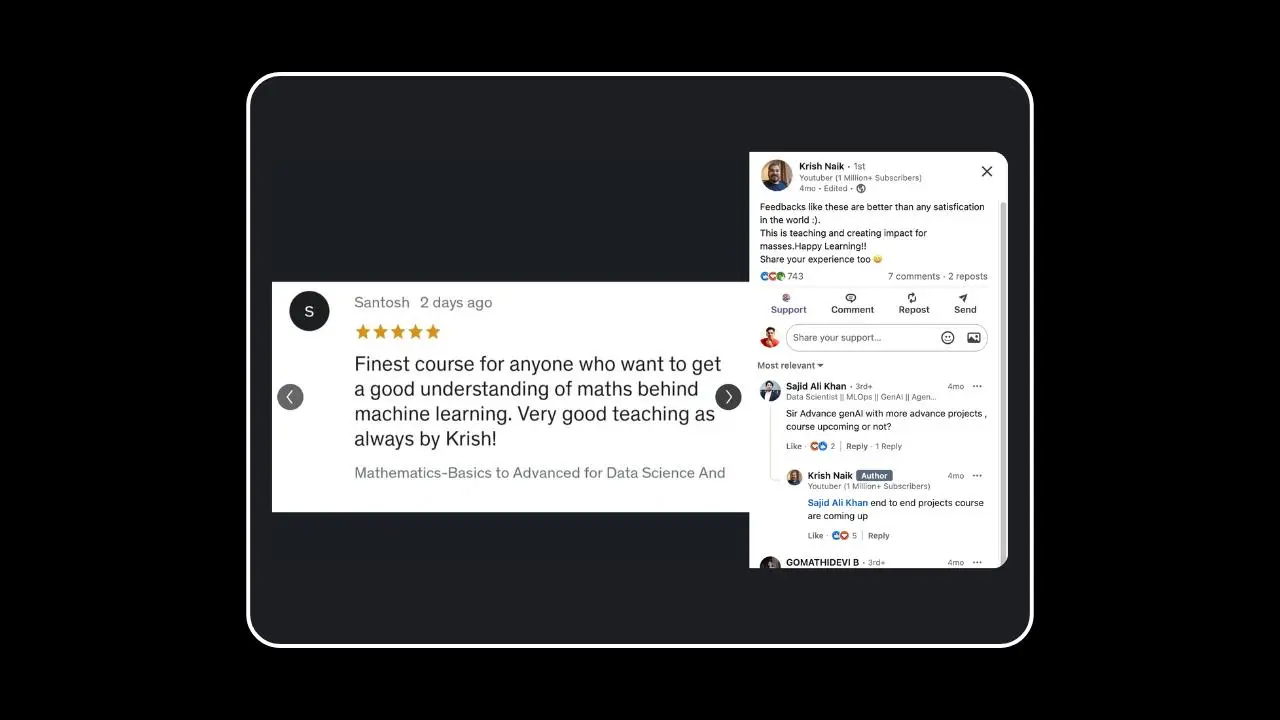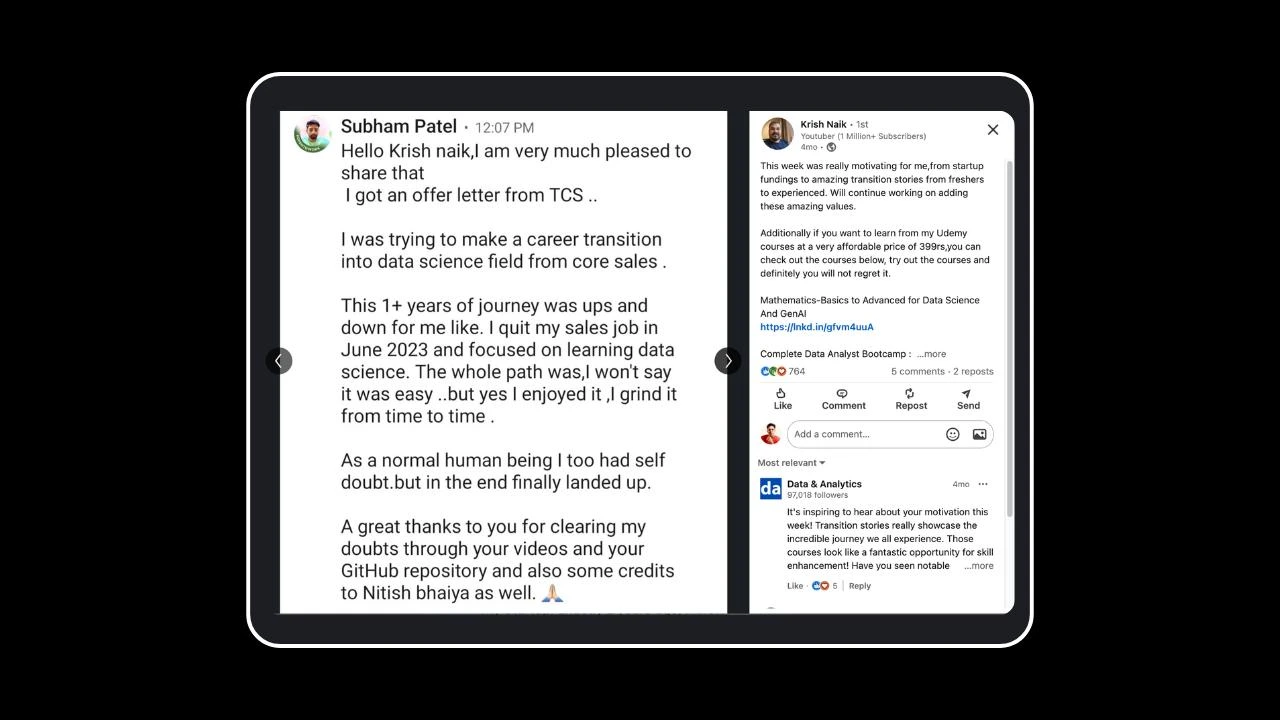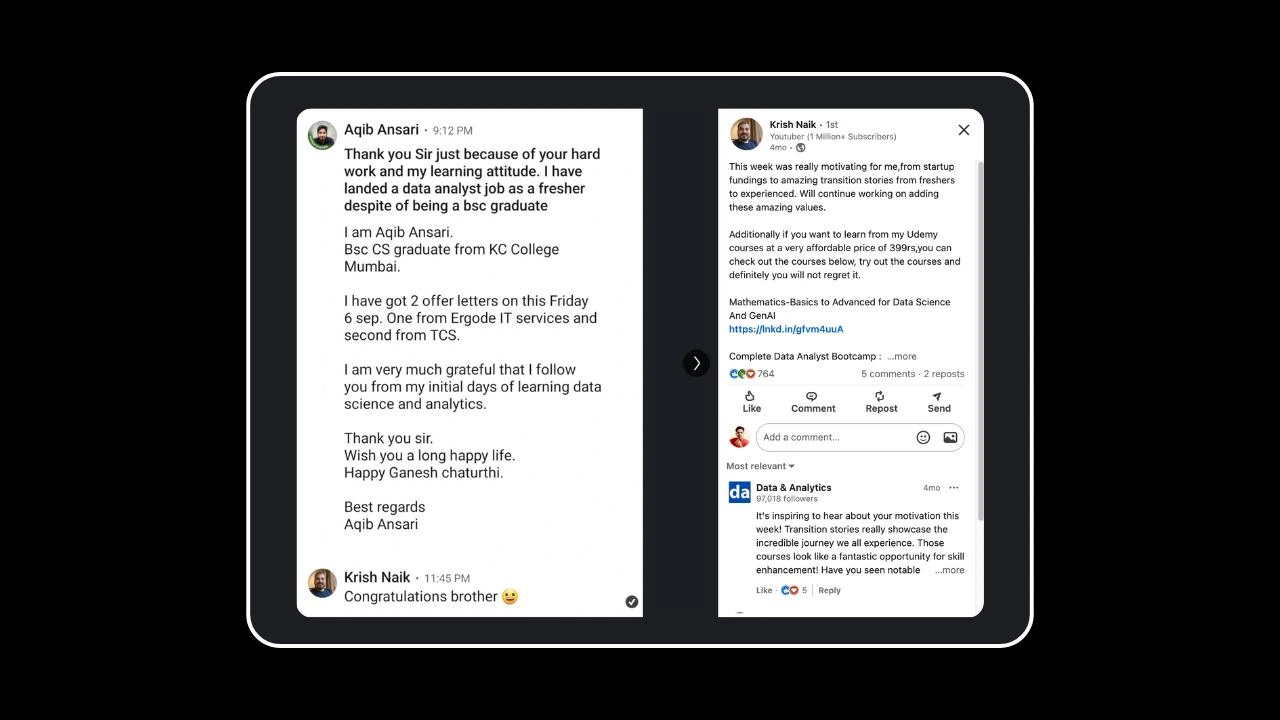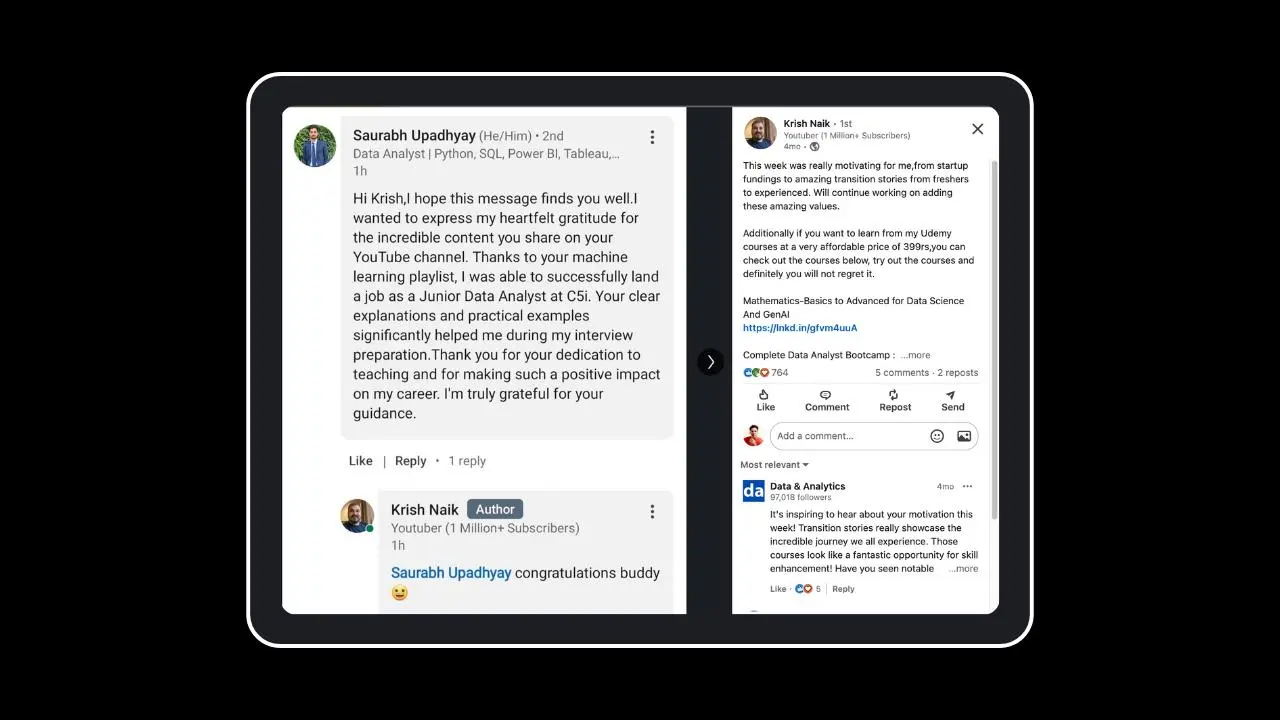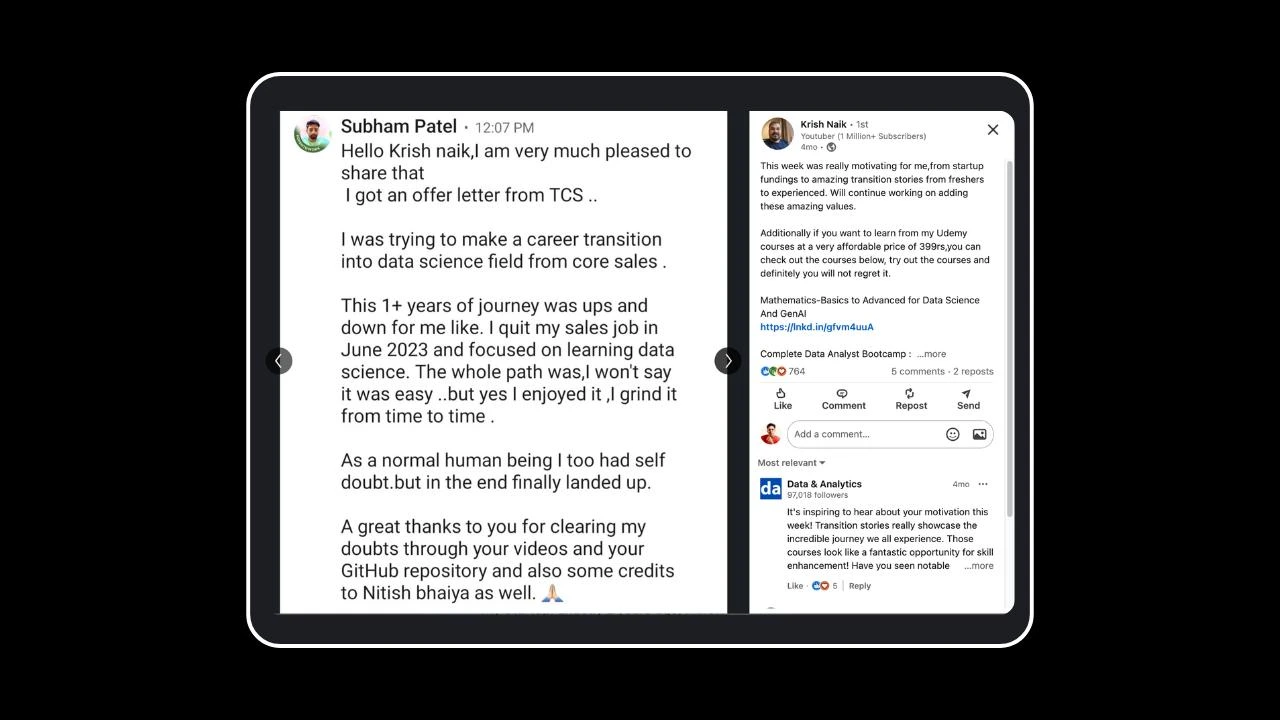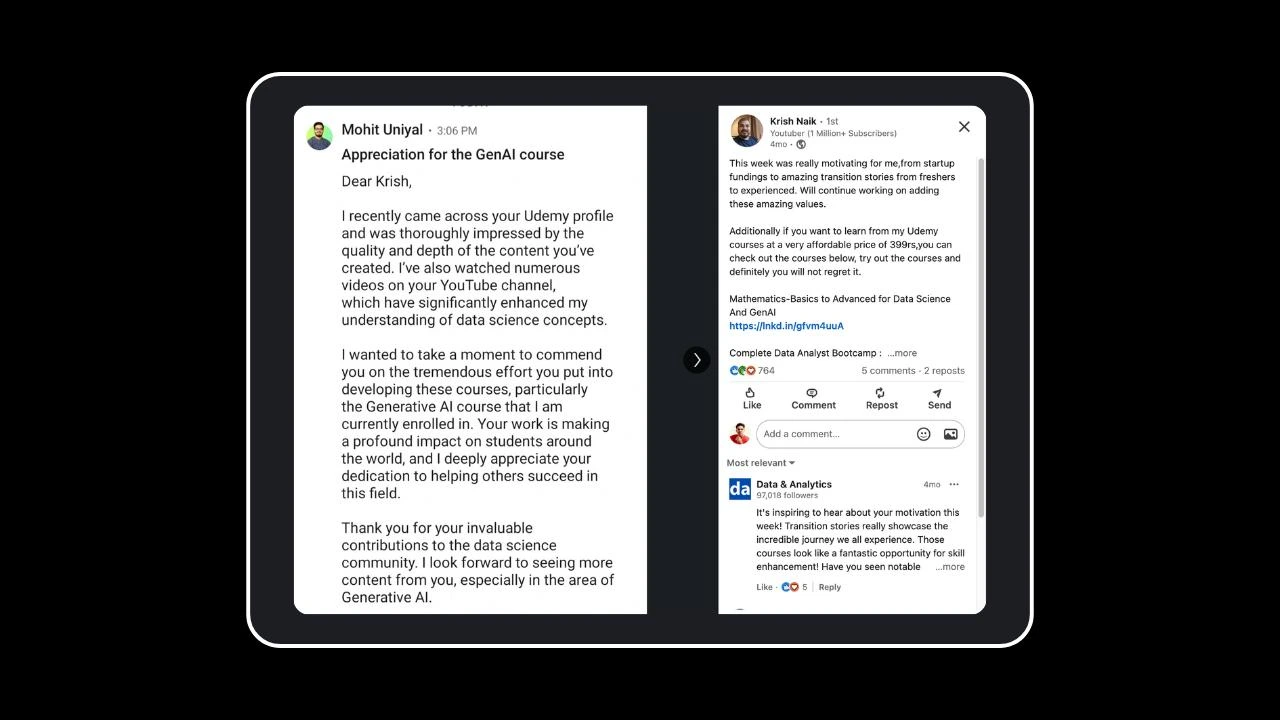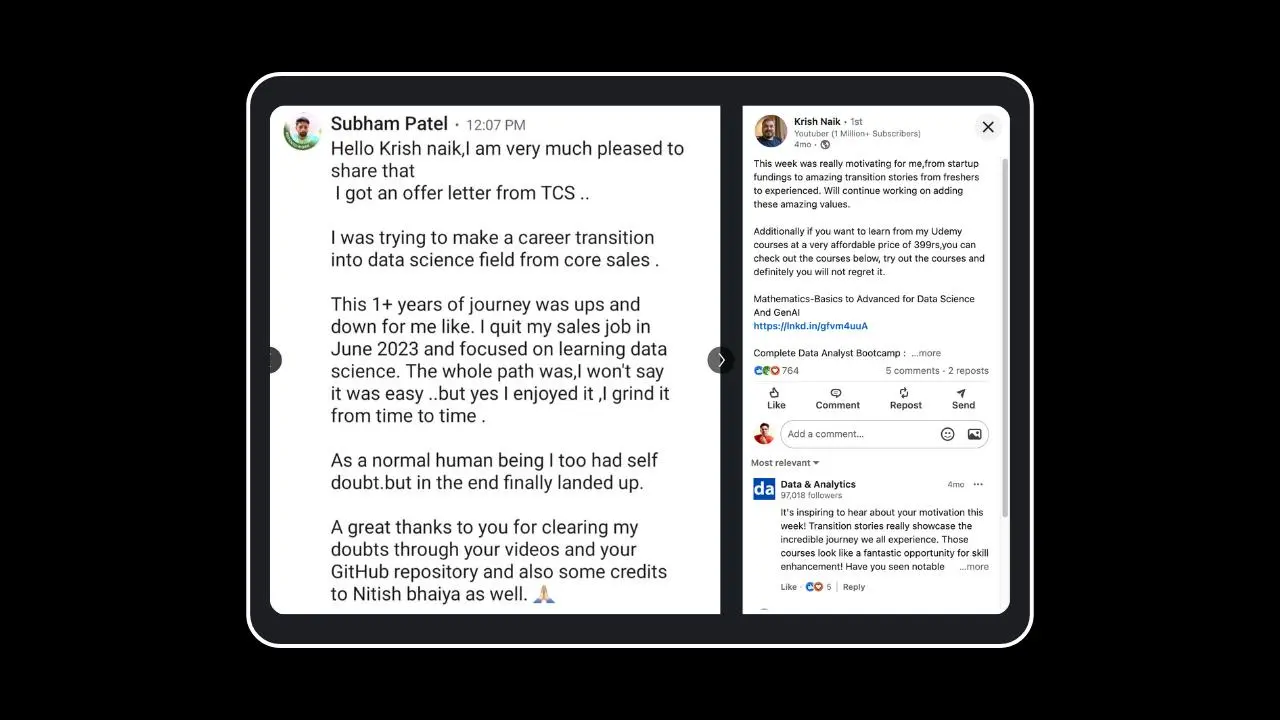Ultimate RAG Bootcamp: Building Traditional to Agentic Systems with Cloud Deployment
Course Fee
₹6999.00
(inclusive of GST)
Course Overview
5 Months
Start Date
November 2, 2025
Sat & Sun 9 Am to 12 PM IST
Building Scalable and Intelligent RAG Pipelines
The Ultimate RAG Course is a 4-month, project-driven program designed for AI engineers, ML practitioners, and developers who want to move beyond theory and master production-grade Retrieval-Augmented Generation (RAG) systems.
You’ll start with the core foundations, document parsing, embeddings, vector databases, and basic Q&A pipelines- and progressively advance into cutting-edge implementations like multimodal retrieval, conversational memory, graph-based RAG, and agentic workflows powered by ReAct.
The curriculum blends 16 structured modules with 5 industry-grade projects, ensuring you not only understand how RAG works but can design, deploy, and optimise enterprise-ready pipelines. By the end, you’ll have built a portfolio of real-world systems, from hybrid search engines to cloud-deployed multimodal assistants and MCP-integrated code review agents.
What You Will Learn
Master every layer of Retrieval-Augmented Generation, frameworks, advanced retrieval, multimodal integration, agentic workflows, and production deployment.
Foundations of RAG
Learn why RAG matters, its advantages over fine-tuning/prompt engineering, and how to set up end-to-end RAG pipelines.
LangChain, LlamaIndex & Haystack
Master popular frameworks for RAG—covering ingestion, embeddings, advanced retrievers, hybrid search, and system integration.
Document Parsing & Preprocessing
Use tools like LlamaParse, Unstructured.io, and semantic chunking techniques to prepare multi-format documents for retrieval.
LangGraph & Workflow Orchestration
Build graph-based LLM workflows, stateful chatbots, and production-ready orchestrations with human-in-the-loop feedback.
Enhanced RAG Techniques
Apply hybrid retrieval (dense + sparse), reranking strategies, query expansion, HyDE, and advanced chunking for performance.
Multimodal & Structured RAG
Integrate RAG with SQL databases, APIs, JSON/CSV, and support text, images, tables, audio, and video for cross-modal search.
Conversational & Contextual RAG
Implement long-term conversational memory, personalization, context optimization, and adaptive dialogue flows.
Agentic RAG
Develop autonomous agents using ReAct, tool calling, chain-of-thought reasoning, and multi-agent collaboration.
Cutting-Edge Innovations
Experiment with Self-RAG, Graph RAG, retriever fine-tuning, knowledge graph integration, and domain adaptation.
Model Context Protocol (MCP)
Learn MCP fundamentals, integrate Claude/Cursor IDE, and build custom MCP servers with LangChain and Docker.
Production & Deployment
Deploy scalable RAG pipelines on Docker, FastAPI, Kubernetes, and AWS EKS with CI/CD, monitoring, and observability.
Portfolio Projects
Build 5 real-world applications, including hybrid search engines, multimodal assistants, and an MCP-powered code review agent.
Projects You'll Build
Apply your learning through real-world, production-ready projects designed to showcase practical RAG implementations.
Project 1: Basic RAG Q&A System with CI/CD
In this project, you’ll build a simple question-answering system powered by RAG. You’ll learn how to process documents, connect them to a language model, and deploy your solution as an API. You’ll also set up CI/CD pipelines and containerize the application with Docker.
Project 2: Multi-Source RAG with Vector Database
Here, you’ll extend RAG to handle multiple document types like PDFs, Word files, and CSVs. You’ll work with vector databases to store and retrieve information efficiently and deploy the system with Docker Compose. This project focuses on handling real-world document ingestion at scale.
Project 3: Hybrid Search RAG with Advanced Chunking
This project teaches you how to combine traditional keyword search with semantic search for more accurate results. You’ll also experiment with advanced chunking methods to improve retrieval quality. The system will be deployed on Kubernetes, giving you practical exposure to scaling RAG applications.
Project 4: Multimodal RAG (Text + Images + Audio)
In this project, you’ll build a multimodal assistant that can handle not just text, but also images and audio files. You’ll learn how to process and combine different data types for cross-modal retrieval, and then deploy the solution on AWS using cloud-native tools.
Project 5: Smart Code Review & Bug Fix Assistant with MCP
The final project focuses on building an intelligent code review assistant. Using Model Context Protocol (MCP), you’ll integrate with code repositories to analyze and suggest fixes for bugs. This project combines advanced RAG with tool integration, making it highly practical for real-world developer workflows.
Course Curriculum
Foundations of RAG
- 1Introduction to RAG and its importance
- 2Limitations of pure LLMs
- 3RAG vs Fine-tuning vs Prompt Engineering
- 4Real-world applications and use cases
- 5Core components: Ingestion, Embeddings, Vector Databases, Retrieval, Generation
- 6Python environment setup with LangChain, LlamaIndex, and vector DBs
Learn from Industry Experts
Why Learn This Course
Go Beyond LLM Limitations
LLMs alone struggle with accuracy, context limits, and stale knowledge. RAG solves these problems by combining external data retrieval with powerful generation—an essential skill for modern AI engineers.
Master Industry-Ready Skills
From LangChain and LlamaIndex to advanced RAG techniques like Self-RAG, Graph RAG, and multimodal integration, this course teaches the exact tools and workflows used in cutting-edge AI systems.
Hands-On, Project-Driven Learning
Theory alone won’t get you job-ready. You’ll build 5 end-to-end projects, including hybrid search engines, multimodal assistants, and an MCP-powered code review agent—creating a portfolio that stands out.
Learn to Deploy at Scale
It’s not just about prototypes. You’ll master production deployment with Docker, FastAPI, Kubernetes, and AWS EKS, along with CI/CD, monitoring, and observability—skills employers value highly.
Stay Ahead with Emerging Tech
With modules on agentic RAG, multi-agent collaboration, MCP integration, and cloud-native orchestration, you’ll gain expertise in areas that are still rare in the job market.
Career Growth in GenAI & AI Engineering
RAG engineering is one of the most in-demand skills for AI engineers, data scientists, and ML developers. Completing this course positions you for roles in GenAI development, enterprise AI, and AI product engineering.
Skills To Learn
What Our Students Say
Frequently Asked Questions
Ready to Transform Your Career?
Join thousands of students mastering AI and Data Science with expert-led courses.
Enroll in This Course



